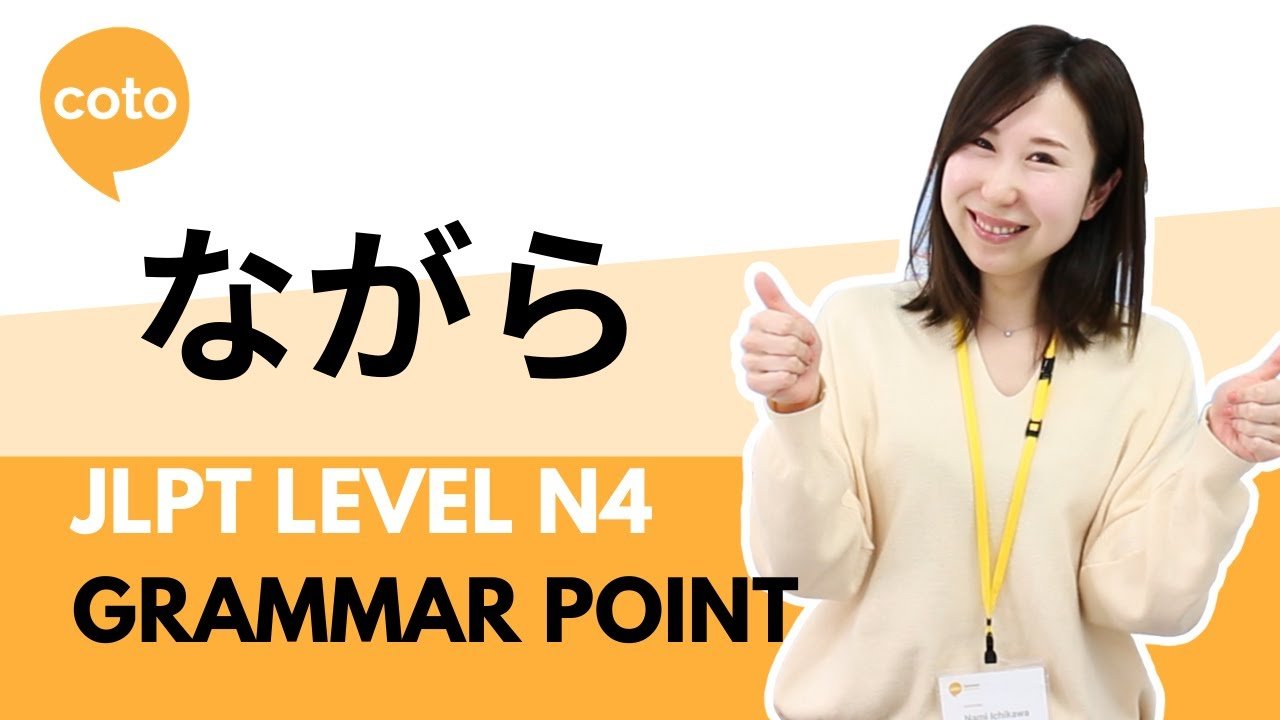We have yet another JLPT grammar blog post for you! In this article, we review Nami-sensei’s video on how to use the JLPT N4 grammar point: ながら (Nagara) meaning “while”.
You may have read some of our previous blogs about the English word “while”. However, as you are probably aware, there are different translations for some English words into Japanese! Such as “during” (JLPT N4), and “while you are there~” (JLPT N3). If you want to review those other words – go right ahead!
Otherwise, review Nami-sensei’s video above with this blog entry~
How to Use the JLPT N4 Grammar: ながら (nagara)
This grammar point ながら (nagara) is used to describe doing 2 actions at once. Specifically, it means doing one thing “while” (nagara) doing another. The direct translations are: while; during; as; simultaneously.
The action order is very important for using this grammar point. The less important of the two actions is the first one, while the most important goes second.
The sentence structure is: action A ながら action B.
A is the least important of the 2, while B is the more important one.
The form is: ます form verb, replace ます with ながら + Action B.
Let’s look at some examples.
Example 1
ネットフリックスを見ながら、ビールを飲みます。
nettofurikkusu o minagara, biiru o nomimasu.
I watch Netflix while drinking beer.
In this example from the video above, Nami-sensei is obviously describing doing these 2 actions at the same time. But for her, the more important action is drinking beer – which is why this action goes at the end of the sentence.
Nami-sensei enjoys Netflix, but she REALLY likes beer. So for her, Netflix is secondary → ネットフリックスを見ながら…
But say you wanted to switch it up? Maybe drinking beer is not as important for you as watching Netflix.
Easy:
ビールを飲みながら、ネットフリックスを見ます。
Let’s look at another example.
Example 2
大学に行きながら、COTOで仕事をします。
Daigaku ni ikinagara, COTO de shigoto o shimasu.
I go to school (university) while working at Coto.
In this example, you can see that ながら can also be used for a longer timespan – and not just simultaneous actions. Nami-sensei works at Coto every week from Monday to Wednesday, and she goes to university every Thursday and Friday.
For her, working at Coto is more important than her university – so the action of going to school goes first.
大学に行きながら…
As you can see, this is an action that can span out across many months. So this grammar point is not restricted to just short term actions.
Interested in Online Group Japanese Lessons?
Want to learn Japanese online in a small-classroom environment?
We are thrilled to announce that we are now offering Online Group Japanese Lessons!
Click the link to register a free account, or if you have any questions please send us an inquiry form at www.cotoacademy.com/contact
